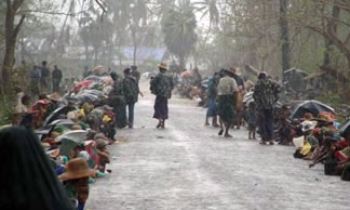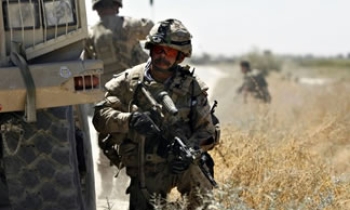Yemen has banned eight newspapers that have covered unrest in the southern part of the country, the Committee to Protect Journalists (CPJ) has reported. Dozens of journalists gathered on May 7 in front of the country's press syndicate in the capital, Sana'a, to protest the government's decision to suspend the newspapers, the Associated Press reported. A similar demonstration was held in the southern city of Aden.
On Monday, the Ministry of Information barred the sale of six newspapers, according to a copy of an order posted on Yemeni and international websites. The ministerial order covered the privately owned Al-Masdar, Al-Wattani, Al-Diyar, Al-Mustaqila, Al-Nida, and Al-Share, all of which reported recent unrest in the southern parts of the country, according to local press reports. The private newspaper Al-Ayyam was forcibly blocked from distribution on Sunday. International news reports said that Al-Ahali, another private outlet, has been added to the list of banned newspapers.
"We are concerned about the ongoing ban on independent newspapers and call on the authorities to immediately end this censorship," said CPJ Executive Director Joel Simon. "Covering the ongoing conflict in the south is an essential journalistic function, and for authorities to ban this coverage is to criminalise journalism itself."
On Wednesday, Minister of Information Hassan Ahmed al-Luzi defended his decision to ban the newspapers arguing that they had violated the country's press law by publishing articles "against national unity and the country's highest interests and they incited to violate law and order and spread hatred and enmity among the united people of Yemen," Saba News, the official Yemeni news agency, reported.
In a speech to parliament on Wednesday, President Ali Abdullah Saleh sent a similar message. "If there is room to talk in the press then you have to publish kindness, love, and brotherhood. If there were mistakes in development or security or the judiciary, criticize those mistakes and there would be no objection, there is room for that. But the unity, freedom, democracy, revolution, the republic, and the constitution are national invariants that cannot be crossed," he was quoted as saying in the state-run newspaper Al-Thawra.
Government censorship began late last week. On Sunday—after three days in which authorities confiscated thousands of copies of Al-Ayyam—security forces besieged the newspaper's production plant and prevented distribution of the paper, Bashraheel Bashraheel, general manager of Al-Ayyam, told CPJ. The paper has not resumed production.
Dissatisfied groups in the south of the country have increasingly accused authorities of marginalizing the region, which merged with the north in 1990. Sporadic clashes between security forces and armed protesters have been reported in the south, including an April 27 protest marking the fifth anniversary of a failed uprising against the government in Sana'a, AP reported. At least 10 security forces and three civilians have been killed in clashes over the past week, AP reported.









